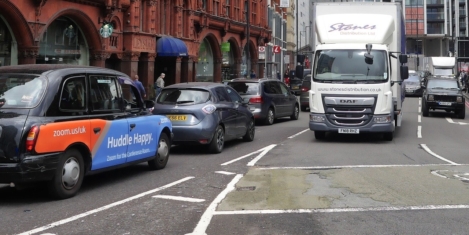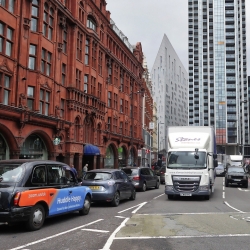To provide the best experiences, we use technologies like cookies to store and/or access device information. Consenting to these technologies will allow us to process data such as browsing behaviour or unique IDs on this site. Not consenting or withdrawing consent, may adversely affect certain features and functions.
The technical storage or access is strictly necessary for the legitimate purpose of enabling the use of a specific service explicitly requested by the subscriber or user, or for the sole purpose of carrying out the transmission of a communication over an electronic communications network.
The technical storage or access is necessary for the legitimate purpose of storing preferences that are not requested by the subscriber or user.
The technical storage or access that is used exclusively for statistical purposes.
The technical storage or access that is used exclusively for anonymous statistical purposes. Without a subpoena, voluntary compliance on the part of your Internet Service Provider, or additional records from a third party, information stored or retrieved for this purpose alone cannot usually be used to identify you.
The technical storage or access is required to create user profiles to send advertising, or to track the user on a website or across several websites for similar marketing purposes.
 UK GDP will be £37bn lower by the end 2022 if there is no trade deal with the EU by the end of this year than if trade talks continue beyond the government’s deadline, a report has claimed. The research by Oxford Economics (registration required) also predicts that financial markets would react negatively to a ‘no trade deal Brexit’, with sterling depreciating by 5 percent against the dollar in late 2020. It would drop around 3.5 percent against the euro, as the eurozone would also face reduced growth in this situation. (more…)
UK GDP will be £37bn lower by the end 2022 if there is no trade deal with the EU by the end of this year than if trade talks continue beyond the government’s deadline, a report has claimed. The research by Oxford Economics (registration required) also predicts that financial markets would react negatively to a ‘no trade deal Brexit’, with sterling depreciating by 5 percent against the dollar in late 2020. It would drop around 3.5 percent against the euro, as the eurozone would also face reduced growth in this situation. (more…)








 Eastern European businesses have benefited overall from EU membership but, for local firms, the promise of joining does not always live up to expectation or improve productivity, a
Eastern European businesses have benefited overall from EU membership but, for local firms, the promise of joining does not always live up to expectation or improve productivity, a 


 Employers should prepare themselves for a dramatic rise in staff taking shared parental leave, a new
Employers should prepare themselves for a dramatic rise in staff taking shared parental leave, a new 
 Nearly a third of freelancers are planning to stop contracting in the UK because the changes to IR35 due in the private sector in April,
Nearly a third of freelancers are planning to stop contracting in the UK because the changes to IR35 due in the private sector in April, 
 The public sector must uphold high standards of conduct when adopting AI, a
The public sector must uphold high standards of conduct when adopting AI, a 




 Two surveys have highlighted continuing fears among freelancers about the changes to the IR35 rules due to take effect in April. The reforms will shift the responsibility for defining contractors’ tax status from the individual to the employer to crack down on so-called ‘disguised employment’, where off-payroll workers are able to pay less tax than employees. However, concerns have been raised that the rules could force organisations to bring genuine contractors and freelancers on to the payroll, reducing flexibility for both parties.
Two surveys have highlighted continuing fears among freelancers about the changes to the IR35 rules due to take effect in April. The reforms will shift the responsibility for defining contractors’ tax status from the individual to the employer to crack down on so-called ‘disguised employment’, where off-payroll workers are able to pay less tax than employees. However, concerns have been raised that the rules could force organisations to bring genuine contractors and freelancers on to the payroll, reducing flexibility for both parties. 


 Outdoor workers in the capital are exposed to 15 percent more pollution than the average Londoner, new
Outdoor workers in the capital are exposed to 15 percent more pollution than the average Londoner, new 






